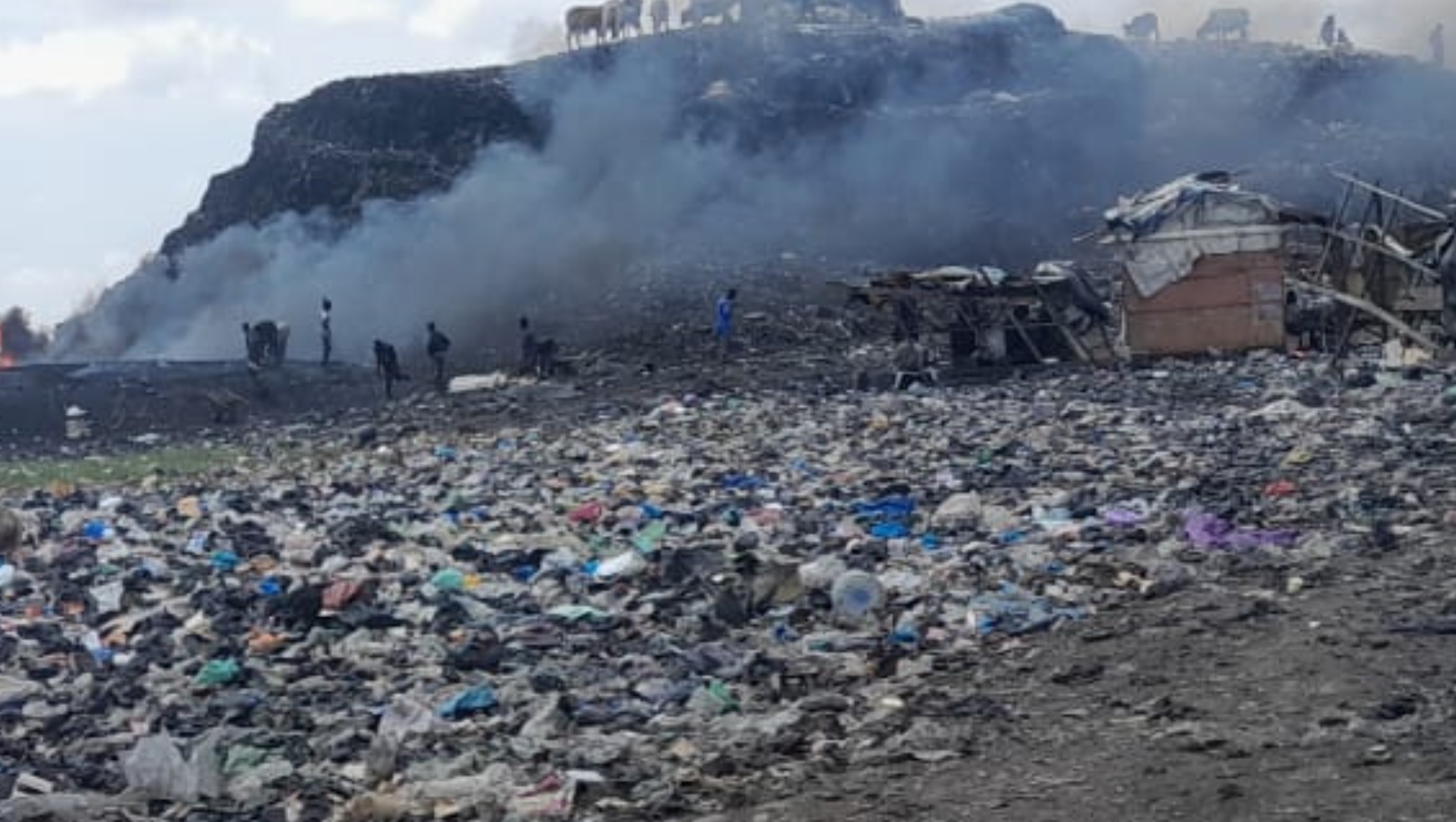

“This is the smoke, they’re burning plastics and everything … We are begging, we are pleading with the Centric team to come and help us.” These are the heartfelt words from one of our Ghanaian volunteers as he wanders through a burning ‘mountain’ of wasted clothes and other discarded materials. This is the final dumping ground of the Western world’s textiles. This is waste colonialism.
This is the practice of developed countries exporting their waste to developing countries, a practice that has been going on for centuries. It has a devastating impact on the environment and the health of people in these often struggling communities.
The fashion industry is one of the most polluting industries in the world. It is responsible for 10% of global carbon emissions, producing a massive amount of waste. Plastic waste is regularly found amongst the exported debris and constitutes one of the most harmful aspects of waste colonialism. Plastics are often difficult to recycle and pollute the environment and harm wildlife and they end up in landfills or incinerators, causing even more damage.
Air and Water Pollution
They inevitably release harmful pollutants into the air and water. The surrounding environment is further devastated by the dye and synthetic fibres found in some textiles which can take decades to degrade. People and the land suffer as a consequence of practices based on colonial practices.
“Western colonialism began around the 1500s, wherein European nations conquered and exploited large areas of the world. While colonialism as a phenomenon has ostensibly ceased to exist in the modern world, it’s still deeply embedded in our economy to this day. The most prominent example of this is the fashion industry.
The term ‘waste colonialism’, coined in 1989, refers to the domination of one group of people in their homeland by another group through waste and pollution. The same routes that the Global North use to export coffee and tea are being used today to bring cheap clothing to western countries, only to be sent back eventually to the Global South. While formerly colonised countries may be independent today, they are still not free of colonial powers.” ( source: The Carbon Literacy Project, Feb. 2023)
The countries most affected by waste colonialism are often those that are already struggling with poverty and environmental degradation. This makes them even more vulnerable to the harmful effects of fast fashion.
For example, in Ghana, the second-hand clothing trade has led to the closure of many local textile factories. This has affected the local job market and has also had a negative impact on the local economy. They suffer as a consequence in many different ways with the fashion industry also a major contributor to this waste colonialism. The industry is responsible for producing a massive amount of clothing waste, much of which ends up in developing countries such as Ghana.
For example, in Kantamanto, Ghana, a second-hand clothing market, a large part of the clothing waste is burned or landfilled. This releases harmful pollutants into the air and water and it can also lead to the spread of diseases.
The West can help alleviate some of the problems by investing in sustainable clothing, for example. CenGiving is working with the local community to fund various projects; beach clean-ups and providing food and care packages are two examples to help ease the burden.
Initiatives in exchange for rewards resonate deeply within locals and find support from government officials, schools and other stakeholders. Promoting job and wealth creation through incentives strikes a chord, as it provides tangible benefits to individuals and communities. Reward schemes, not necessarily limited to cash, have proven to be effective motivators for active participation and engagement.
Extensive support and collaboration are necessary to address the complex environmental challenges effectively. Partnerships and raising awareness are other powerful tools in dealing with a problem that can have worldwide repercussions.
The Future of Fashion
The fashion industry is at a crossroads. It can either continue down the path of waste colonialism or, it can choose to create a more sustainable future for fashion whenever possible. Maybe we should think about buying less clothing and supporting sustainable brands, plus donating our old clothes to local charities. These steps can help to reduce the amount of waste produced by the fashion industry and protect the environment for future generations.
Waste colonialism clearly has a long history, in its many guises, and has to be addressed to avoid continuous damage to communities and the environment. The Church of England have set aside £100 million to address the shameful past of the Transatlantic slave trade, acknowledging the damage colonisation has caused. (source: Financial Times).
By taking action, we can help to make a difference and protect the environment for future generations. As the famous fashion sports brand once advertised: ‘Just Do It!’.
------------
External Sources

COPYRIGHT 2021. CENTRIC. ALL RIGHTS RESERVED